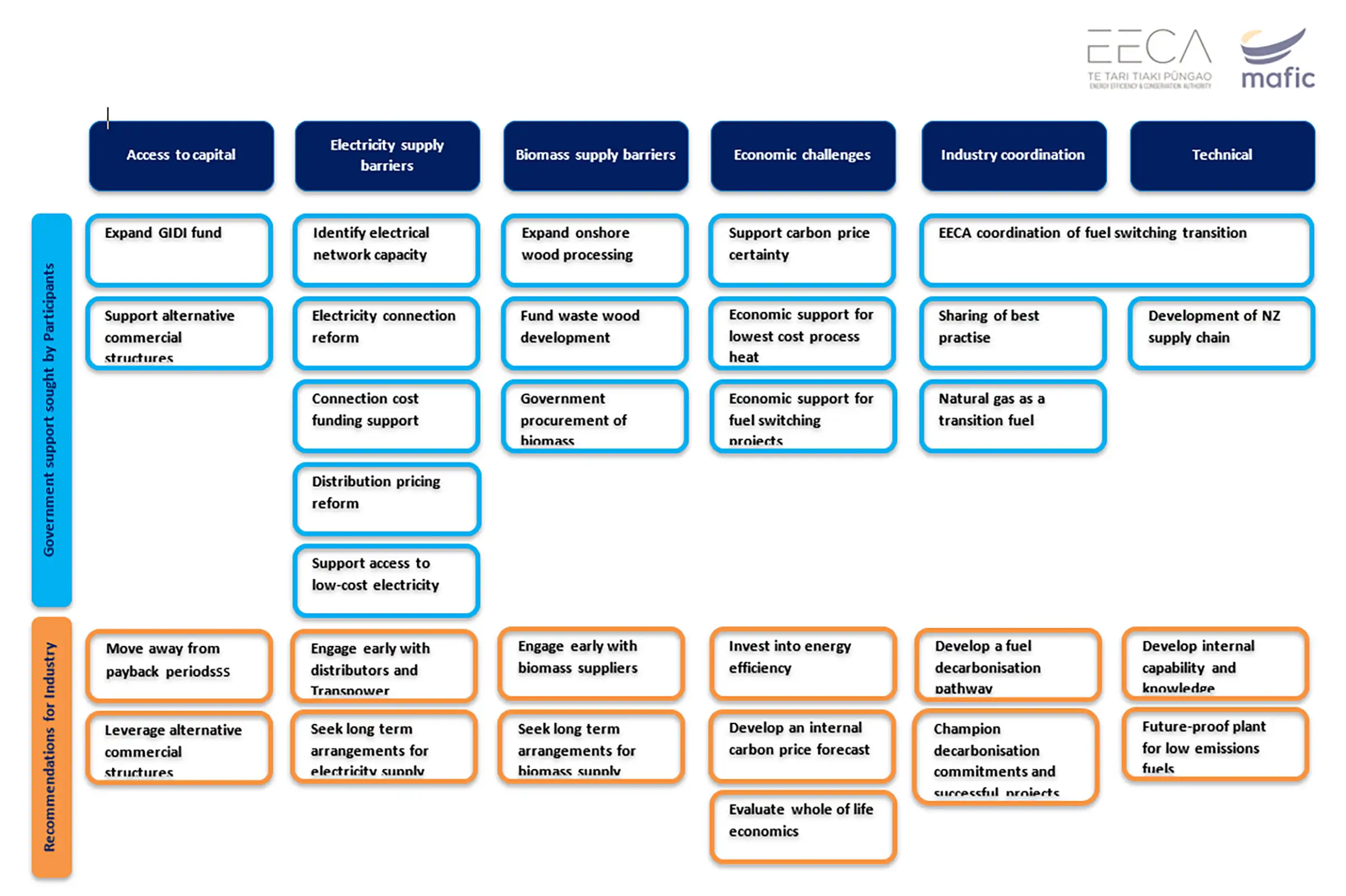Process heat is energy used in the form of heat, specifically in industrial and manufacturing processes. Currently, a significant portion of New Zealand’s overall energy use is for process heat and over half of this is supplied by burning fossil fuels such as coal or natural gas.
At present, burning fossil fuels to supply process heat results in over 8 million tonnes of CO2e or about 28% of New Zealand’s overall energy emissions per year.
Achieving the reduction in carbon emissions needed to limit global temperature rises will require a significant acceleration of investment in both energy efficiency and fuel switching projects. In New Zealand this will require billions of dollars of capital investment to transition to a low-carbon economy. The Climate Change Commission’s Demonstration Pathway outlines that the transition away from coal and fossil gases needs to begin immediately at scale and that by 2040 the use of coal is largely phased out, with fossil gases gone by 2050.
Given the scale of New Zealand’s fuel switching challenge, Mafic Partners was engaged by EECA to undertake a market sounding with large energy users and others in the supply chain. Mafic’s objective was to understand what stakeholders considered were the key barriers to low-carbon fuel switching and explore the merits and drawbacks of a range of potential solutions to these barriers. The market participants engaged included large industrial process heat users, long-term capital providers, and ecosystem players such as network operators, fuel suppliers and consultants.
The report covers Mafic Partners’ findings and two sets of recommendations, one set for Government and one set for industry.
Of the recommendations for Government, those that EECA considers the most compelling for immediate investigation are:
- Biomass fuel supply: We will explore a specific role for EECA in assisting with biomass industry development.
- Financial capability: We will explore further direct funding to address capital barriers to decarbonisation, as well as improving the availability and use of commercial information.
- Coordination and regional strategy: We will explore whether there are opportunities to achieve a coordinated decarbonisation ecosystem through a regional specific approach.
- Supporting development of expertise: We will explore the best way to support bringing through the skills needed for the low-carbon future. We will also continue to expand our role in facilitating opportunities for sharing learnings.
Summary of Recommendations and Government support sought

